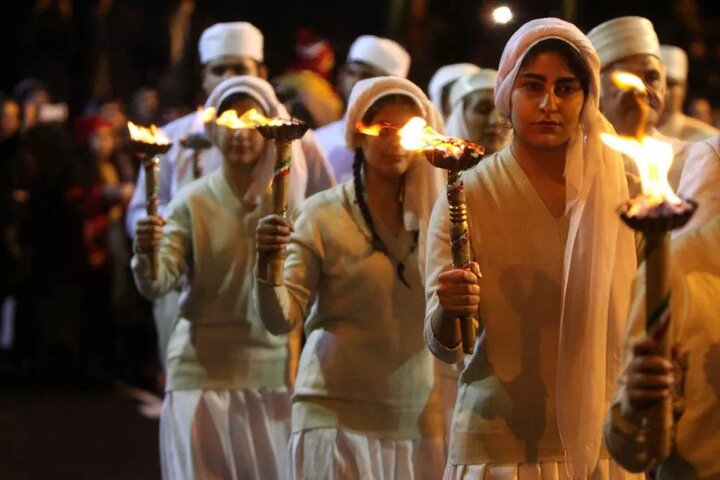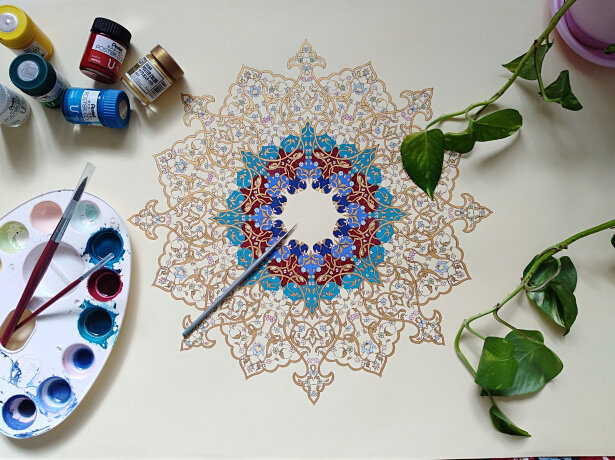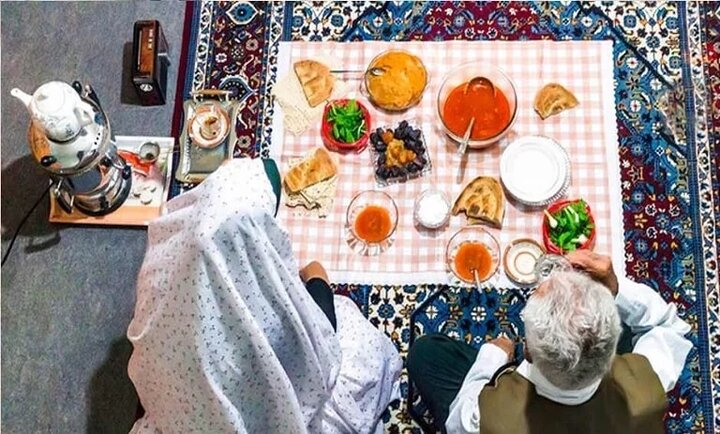Iranian cultural riches shine bright: Iftar, Sadeh festival and art of illumination join UNESCO list

TEHRAN – On Wednesday, in a nod to Iran’s vibrant tapestry of customs and history, UNESCO's latest additions to its prestigious list -- namely Iftar and its socio-cultural traditions, the ancient jubilation of Sadeh festival, and the intricate artistry of Tahzib in illuminated manuscripts -- elicited waves of joy among Iranians who have cherished their enduring legacy through generations.
Iftar and its associated socio-cultural traditions was inscribed on the Representative List of the Intangible Cultural Heritage of Humanity as a shared tradition between Iran, Turkey, Azerbaijan, and Uzbekistan.
Iran, Azerbaijan, Tajikistan, Turkey, and Uzbekistan jointly gained the honor of registering Tazhib on the list during the 18th session of the Intergovernmental Committee for the Safeguarding of the Intangible Cultural Heritage, being held in Kasane, Botswana, on Dec. 4-9.
The Sadeh festival, aka Jashn-e Sadeh in Persian, was registered as a common heritage between Iran and Tajikistan.

The festivity, usually occurring on January 30th, derives its name from the Farsi word for "one hundred" (Sad), marking 50 days and 50 nights before Nowruz, the commencement of the Iranian calendar year on March 21st. Rooted in ancient traditions, it is celebrated predominantly by Iranian Zoroastrians in cities like Yazd, Tehran, Shiraz, and Kerman. The festival commemorates the mythical discovery of fire, observed with the lighting of a large woodpile during its zenith.

Tazhib, an intricate form of Islamic illumination and ornamentation, is deeply embedded in Persian and Islamic art. Originating from ancient Persia, this refined artistic practice involves adorning manuscripts, book covers, Qur'ans, and various surfaces with intricate designs using gold, vibrant hues, and delicate patterns. While its strict definition pertains to manuscripts embellished with gold or silver, in broader terms, it encompasses any decorated or illustrated manuscript.
Iftar holds significance during the sacred lunar month of Ramadan, a period when devout believers refrain from food and drink between dawn and dusk, culminating in the breaking of the fast with the evening meal known as Iftar. These meals range from simple offerings of bread, dates, cheese, and tea to more substantial feasts. For Muslims, Ramadan, also referred to as “Ramazan-e Karim” (benevolent/merciful Ramadan), is a time for heightened devotion, humility, patience, empathy, and acceptance amid life's trials. It fosters the strengthening of communal bonds.

As stated by the UN cultural body, Iftar (also called Eftari) is a ritual observed by Muslims at sunset throughout the ninth month of the lunar calendar, signifying the completion of religious and ceremonial obligations. Embraced by individuals of diverse ages, genders, and backgrounds, it symbolizes the daily culmination of the fasting period's challenges.
Following evening prayers, various activities ensue, including prayer ceremonies, music, storytelling, games, meal preparations, and matrimonial arrangements. Communities often gather, strengthening familial and societal ties while promoting charity, solidarity, and social interaction. Rituals associated with Iftar are observed by individuals who may not necessarily fast during Ramadan.
These practices and knowledge are typically passed down within families through oral traditions, observation, and active participation. Younger generations are frequently entrusted with the preparation of traditional meal components, allowing parents to impart wisdom regarding fasting benefits and the social significance of Iftar. Governmental bodies, NGOs, charities, television, radio, the press, and social media platforms often support and promote Iftar.
According to Iran’s Ministry of Cultural Heritage, Tourism, and Handicrafts, the Islamic Republic firmly adheres to the UNESCO Convention for the Safeguarding of Intangible Cultural Heritage. Earlier this year, Ali Darabi, the deputy for cultural heritage, affirmed Iran's proactive stance in implementing this convention during the 5th Ordinary Governing Council Meeting of the Regional Research Center for Safeguarding Intangible Cultural Heritage in West and Central Asia.
AFM
Leave a Comment